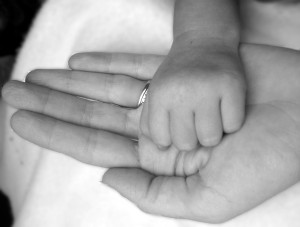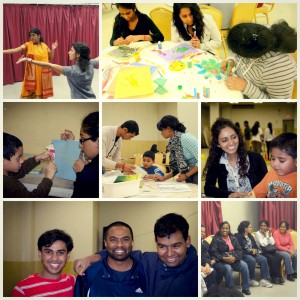By SAAAC 
“The course of true love never did run smooth.”
 These immortal words by Shakespeare captures one of the central truths of love: it isn’t easy. Along with the joys of laughter and the peace of companionship comes moments of great sacrifice and, at times, overwhelming pain. There are numerous challenges a relationship faces throughout its course. For every couple at the South Asian Autism Awareness Centre (SAAAC), some of those challenges arose from raising a child with autism.
These immortal words by Shakespeare captures one of the central truths of love: it isn’t easy. Along with the joys of laughter and the peace of companionship comes moments of great sacrifice and, at times, overwhelming pain. There are numerous challenges a relationship faces throughout its course. For every couple at the South Asian Autism Awareness Centre (SAAAC), some of those challenges arose from raising a child with autism.
According to studies, autism – a neurological disorder that affects how a person communicates, socially interacts and behaves – poses greater levels of parenting stress and psychological distress than any other developmental disability. How does a relationship endure through the challenges brought upon by special needs, especially autism? Gowri and Kobi, a married couple of 20 years and one of the first families to join SAAAC, agreed to share their experiences as a way to help new parents raising a child with autism. 
Gowri and Kobi were brought together more out meeting social expectations and fulfilling familial obligations rather than personal feelings. Gowri worked as an English teacher in Sri Lanka, and loved her job.
“I spent more time thinking of my career than I did of getting married. It troubled my parents a bit,” said Gowri, giving a warm laugh. “But I was getting older and I had two younger sisters waiting for me to get married, so it was the next step in my life.”
The rising ethnic tensions in Sri Lanka had forced Kobi to find work abroad. At the request of his family, he had returned to Sri Lanka to find a wife and begin a family of his own.
“I was abroad for a few years and I worked a lot of different jobs,” said Kobi, his trademark grin spread across his face. “Even though I loved the experiences and the great friends, there was a sense of loneliness at times, and I knew there was more to life than what I was doing. Even though my parents asked me to return, there was a part of me that also wanted to go back home and settle down.”
The two were introduced through family friends. There were evening phone calls that both Gowri and Kobi remember fondly; a handful of outings to beaches and coffee shops. There was a warm simplicity in their courtship, and what began as a relationship to fulfill external expectations soon transformed into something more personal. The two wed six months later, and given the political instability in Sri Lanka, left for Canada soon afterwards.
The couple had three children: a beautiful daughter and two lively boys, the youngest being Niro. Niro was special from the beginning. He was energetic, bubbly, and easily amused.
“He was the centre of attention in the family,” said Gowri remembering. “Everyone loved him. He was the youngest. He would always catch the attention of neighbours and passerbys. He was such a charming boy.”
 Around the age of two, Gowri and Kobi began to see certain behaviours in their son that troubled them. Niro stopped responding to his name and even stopped talking. In the first 18 months of his life, Niro was social, playing with his siblings and was able to call out for his mother and father. But it seemed like overnight, Niro lost all those abilities. He began to keep to himself, living in a world all his own.
Around the age of two, Gowri and Kobi began to see certain behaviours in their son that troubled them. Niro stopped responding to his name and even stopped talking. In the first 18 months of his life, Niro was social, playing with his siblings and was able to call out for his mother and father. But it seemed like overnight, Niro lost all those abilities. He began to keep to himself, living in a world all his own.
“We initially thought it was a hearing problem,” said Gowri, looking troubled. “But as time went on and we saw his other behaviours, we knew it something more.”
“I remember the time when I knew something was wrong,” said Kobi, his grin disappearing. “I had bought him a toy car and all he did was spin the back wheel over and over and over again. Nothing else. He did not play with it like any other child would, he just kept spinning the back tire, and in that moment I felt something drop inside me.”
What Gowri and Kobi were seeing were the symptoms of autism. Niru had no language or social skills, no social responsiveness, little to no eye contact and limited imaginative play skills.
The diagnosis of autism at the age of two came as a shock and would transform all their lives.
“I was incredibly heartbroken,” said Gowri, looking solemnly at her lap. The doctor was telling us how complicated autism was, that there was no cure, that this would be a lifelong disability. I was so scared.”
The subsequent years would be incredibly difficult for Gowri and Kobi. Gowri was Niro’s full-time caretaker, taking him from appointment to appointment, travelling often far distances to meet with specialists. Kobi was working two to three jobs at a time that did not provide much financial security. When Niro was put on various waitlists for vital programs offered by the government, the couple could not afford to pursue private therapies, which would have cost them as much as $60,000 per year.
“I remember cold early mornings when we all had to travel into the city by bus for an appointment,” said Kobi, reflecting on the great effort of the entire family. “Niro hated it and he would throw violent tantrums. It was stressful getting him ready, along with our two other kids, taking them through all those people on buses and trains to these appointments and treatments. We did that for years. It was hard.”

stock image
There was an additional stress, a heartbreaking result of an individual with autism who could not constantly reciprocate the loving emotions and feelings bestowed upon them by their loved ones.
“You want your child to say ‘I love you’ or give you a big hug,” said Gowri. “But when your child avoids your touch or doesn’t even look at you, it hurts, but you understand that this is part of the disorder.”
Though, for the past 17 years , Gowri and Kobi have weathered the heartaches and challenges posed by autism to provide a happy and stable home for their children.
“It was not easy at all and we are still working at it,” said Kobi. “When you are you young, you think things will be different, you have certain dreams and goals, and ways you want to live. But those things can change in an instant. The secret is to not get crushed under the weight of lost dreams. Me and Gowri wanted a certain life and we got another. The best thing we did was accept it. It was hard to adjust, but we didn’t put more stress on ourselves by denying it and putting off the problem.”
Acceptance allowed the couple to start making plans to accommodate Niro. By both Gowri and Kobi understanding the severity of their son’s condition, they were able to start seeking out assistance immediately.
Gowri points to the couple’s ability to get on the same page as one of the strongest reasons they were able to get through tough years. “If we both had different plans and different ways of helping Niro, it would have been so difficult. Because we agreed early on that we would support each other, we were able to travel in the same direction. We talked about treatment options together, we discussed things, and only when we arrived at the same end result did we move forward. All this has helped in Niro’s development and keeping our household together.”
The couple also made the crucial decision to not hide their son from their family or their community. By freely telling family members and friends about Niro’s condition and helping them understand what it meant, the couple were able to extend their support networks.
“You need help,” said Kobi. “If you expect to do this on your own, it will be really tough. My family and Gowri’s family were able to give us support in many ways: from babysitting to just talking to us when we needed some encouragement. Hiding your child will only add to the hardships. You don’t need anymore of that in your life than you already have.“
 Kobi underscores a point that SAAAC continuously tells all its families: look to increase your support networks. SAAAC has come across countless families that have hid their child with special needs from family, friends, and their community, not looking to talk about such things out of shame or fear of being stigmatized. Contrastingly, by being open to their family and friends, Kobi and Gowri did not undergo hardships in silence or by themselves, and thereby decreased the stresses they faced.
Kobi underscores a point that SAAAC continuously tells all its families: look to increase your support networks. SAAAC has come across countless families that have hid their child with special needs from family, friends, and their community, not looking to talk about such things out of shame or fear of being stigmatized. Contrastingly, by being open to their family and friends, Kobi and Gowri did not undergo hardships in silence or by themselves, and thereby decreased the stresses they faced.
The one regret the couple continue to highlight in their conversation is their inability to pursue early interventions when Niro was younger. Evidence shows that early intervention can result in children with autism learning skills and behaviours with more ease, which ultimately serve them well later in life. Niro had been placed on numerous waitlists, and the family could not afford private therapies. There were long periods where Niro was not getting any appropriate therapies that would have concentrated on developing vital life skills. The couple thought Niro’s school would provide sufficient services while they were waiting for government services, but due to an overwhelmed and strained education system, Niro was not able to get the same care a service provider specializing in autism would have offered.
“If you are a young parent and can’t afford services,” Kobi urges, “please look to community services that help parents find special funding. There are many grants out there that concentrate on low-income families with children with special needs. Any extra money that can get your child early intervention would be great.”
The couple also encourages parents not to lose focus of their other children. “It’s very easy to concentrate all your attention on the child that needs the most help,” says “Gowri. “But, you need to be careful not to isolate your other children. We made it a priority to make all of our kids feel loved, and we were heavily involved in all of their interests and extracurricular activities. In turn my two other kids became essential in caring for Niro – they are his best friends.” 
Gowri and Kobi have been able to build a great life that provides a happy, secure, and supportive household for their children. Though, it came after years of getting accustomed to a lifestyle that comes with a special needs child. “Oh yeah,” said Gobi, tiredly exhaling. “It took many years to get use to life with Niro. Taking him to treatments; creating routines so he would not get irritated, dealing with his tantrums which would cause him to hurt himself, paying expensive therapy bills, and then dealing with all the other things normal parents deal with. But you get used to it and if you have great people around you to help, it actually becomes a great life.”
“Just be there for one another,” sang Gowri glowingly. “I could not have made it so far without a loving, supportive partner. He is there and works so hard. I know we both wanted different things out of married life, but I think what we received was much better. We have amazing kids, we have grown so much as human beings by raising them and seeing them succeed. I wouldn’t want to change a thing because if I did I would not have him or my children – which is all I need.”



Beautifully written, thanks for sharing this story Anjum.